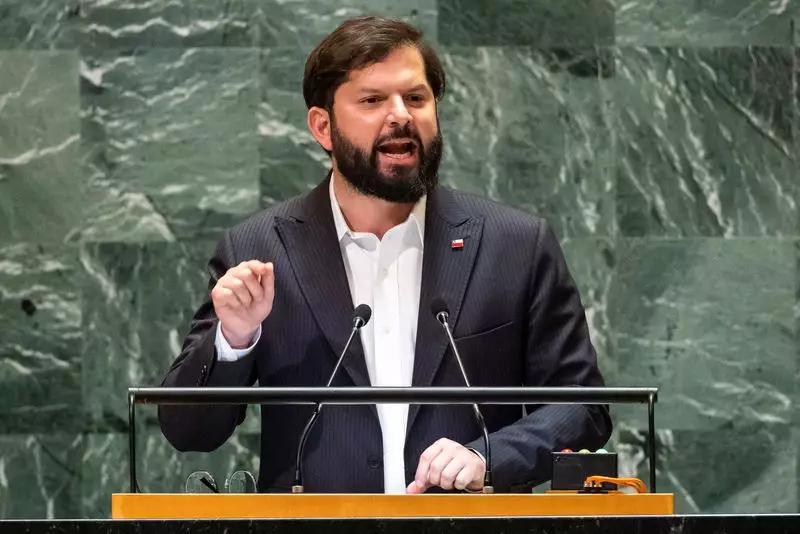In a recent address, President Gabriel Boric unveiled Chile’s proposed budget for 2025, which aims for a 2.7% annual increase. This budget is a significant move for the government, reflecting its strategic priorities in crucial areas such as pensions, healthcare, and national security. The proposed allocation emphasizes a comprehensive approach to enhancing the overall welfare of Chilean citizens while simultaneously addressing pressing security concerns.
A notable aspect of Boric’s budget proposal is the marked increase in funding for national security, with an additional $1.5 billion allocated compared to the previous year. This measure aims to bolster police presence and improve officer compensation, alongside investment in prison facilities. Boric asserted that ensuring the citizens’ security is a fundamental commitment of his administration. He underscored the ongoing necessity for vigilance in public safety, as recent trends have prompted rising concerns regarding crime and safety. A 15% increase in the security budget over three years reveals the government’s long-term commitment to addressing these issues.
Boric’s government is also shifting its stance on immigration, especially regarding illegal migration. The president indicated a more stringent approach, suggesting the expulsion of migrants who fail to comply with the mandated biometric registration process. This toughened rhetoric coincides with the broader context of the regional migration crisis, particularly stemming from Venezuela, where pervasive economic and social challenges have sparked a mass exodus. During his speech at the United Nations General Assembly, Boric expressed Chile’s constraints in accommodating additional migrants, demonstrating a balancing act between humanitarian responsibilities and national interests.
Aside from security, the budget proposal also earmarks significant funds for enhancing pensions, health services, education, and cultural initiatives. A staggering 42% increase in resources allocated to immunization programs highlights a renewed commitment to public health, particularly in the post-pandemic context. Furthermore, the agenda to digitize 240 permit processes aims to streamline bureaucratic inefficiencies, fostering a more conducive environment for investment and economic growth. By addressing such foundational sectors, the government indicates its proactive approach to improving citizens’ quality of life while stimulating economic activity.
As the government prepares to present its budget bill to Congress, it faces a dynamic economic landscape. Recent forecasts from Chile’s central bank suggest that inflation is projected to average 4.5% this year. The government’s growth target for the economy stands at 2.6%, indicating cautious optimism in a time when revisions to growth projections have been made. The execution of the proposed budget will ultimately rely on Congress’s approval, imperative given the recent enactment of new tax legislation expected to bolster state revenue by an additional $1.2 billion.
By addressing critical areas such as security, migration, social welfare, and economic stability, Chile’s 2025 budget proposal showcases the Boric administration’s intentions to prioritize both public safety and the well-being of its citizens, although navigating these complex challenges will require careful implementation and collaboration with legislative stakeholders.

